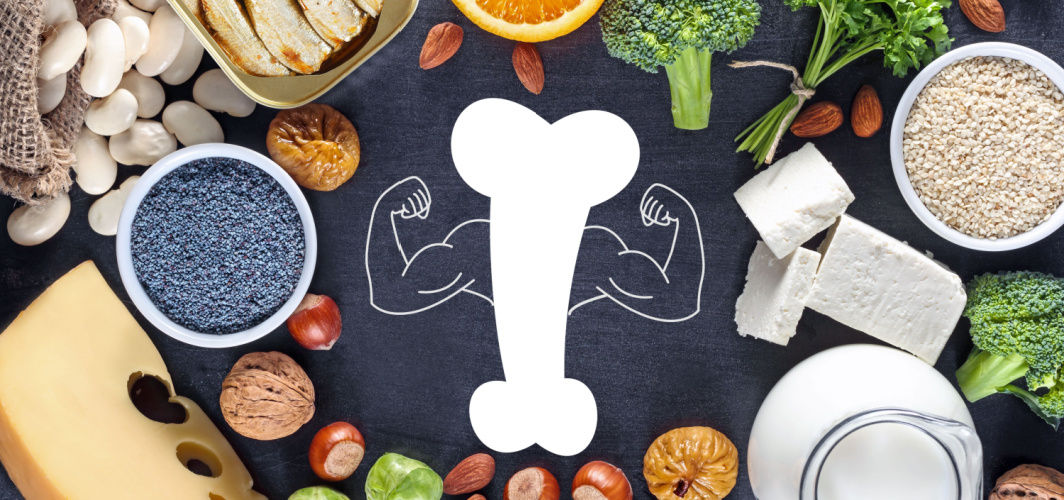General Health
Top 10 Calcium-Rich Foods: Building Strong Bones and Teeth
6 min read
By Apollo 24|7, Published on - 06 September 2023, Updated on - 20 September 2023
Share this article
0
1 like

Calcium plays a crucial role in maintaining strong bones and teeth. It is an essential mineral that our bodies need to function properly. From the time we are born until adulthood, our bones undergo a continuous process of growth and remodelling. Calcium is the key component that ensures this process happens effectively. It helps in muscle contractions, blood clotting, nerve function, and maintaining a healthy heart rhythm. In this article, we will delve into a comprehensive exploration of the top 10 calcium-rich foods, illuminating the path to robust bone and dental health.
What are Calcium-Rich Foods?
Calcium-rich foods are those that contain a high amount of bioavailable calcium. Bioavailable calcium refers to calcium that can be easily absorbed and utilised by the body.
1. How to Incorporate Calcium-rich Foods into Daily Diet
- Include at least three servings of dairy or non-dairy calcium-rich foods in your daily meal plan.
- Opt for low-fat or fat-free dairy products to minimise saturated fat intake.
- Incorporate a variety of calcium-rich foods to ensure you get a range of nutrients along with calcium.
2. Factors Affecting Calcium Absorption
- Vitamin D: Adequate vitamin D levels are necessary for the absorption of calcium. Ensure you get enough sunlight exposure or consider taking a supplement if needed.
- Oxalates and phytates: Certain compounds found in some plant-based foods can bind to calcium, reducing its absorption. However, this effect can be minimized by pairing these foods with vitamin C-rich sources.
Top 10 Calcium-Rich Foods
As an essential mineral that plays a crucial role in maintaining strong bones as well as supporting various bodily functions, it is vital to incorporate calcium-rich foods into our diet.
1. Milk and its Alternatives
Cow's milk is a great source of calcium, but if you're lactose intolerant or following a plant-based diet, you can opt for alternatives such as:
- Almond milk
- Soy milk
- Oat milk fortified with calcium
For fortified plant-based milk, check the labels to ensure that the product contains at least 120 mg of calcium per 100 ml.
2. Yoghurt and Greek yoghurt
Yoghurt is not only rich in calcium but also contains beneficial probiotics that support gut health. Greek yoghurt, in particular, has a higher calcium content compared to regular yoghurt.
3. Cheese varieties
Cheese is a delicious way to add calcium to your diet. Some examples of cheese that are high in calcium are:
- Parmesan
- Cheddar
- Mozzarella
- Swiss cheese
4. Spinach
Spinach is not only rich in calcium but also contains other essential nutrients like:
It can be enjoyed in salads, smoothies, or cooked dishes.
5. Kale
Known as a superfood, kale is loaded with:
- Calcium
- Vitamins A
- Vitamin C
- Vitamin K
- Antioxidants
It can be added to salads, and stir-fries, or used as a base for green smoothies.
6. Collard Greens
Collard greens are a great source of calcium and also provide fibre and vitamin K. They can be steamed, sautéed, or added to soups and stews.
7. Almonds
Almonds are a fantastic source of calcium, providing about 8% of the daily recommended intake per ounce. They are also rich in other bone-building nutrients like magnesium and vitamin E.
You can enjoy almonds as a snack or add them to your smoothies, salads, or trail mixes. Almond butter is another great choice for those who prefer a spreadable option.
8. Sesame Seeds and Tahini
Sesame seeds are a powerhouse of calcium, providing around 9% of the daily recommended intake per tablespoon. They are also loaded with other bone-friendly nutrients such as iron, fibre and zinc.
Tahini, made from ground sesame seeds, can be used as a dip or added to dressings and sauces.
9. Broccoli
Apart from being rich in calcium, broccoli is packed with other nutrients like:
- Vitamin C
- Fibre
- Antioxidants
It can be steamed, roasted, or added to stir-fries.
10. Bok Choy
Bok Choy is a Chinese cabbage variety and is not only low in calories but also high in calcium and other vitamins and minerals. It can be stir-fried, sautéed, or added to soups.
Other Calcium Sources for Vegetarians and Vegans
For those who follow a vegetarian or vegan diet, getting enough calcium can be a challenge since dairy products are off-limits. However, there are still plenty of options available to meet your calcium needs.
1. Tofu and Tempeh
Tofu and tempeh are excellent sources of calcium for vegetarians and vegans. Half a cup of tofu can provide around 250-300 mg of calcium. For a boost in calcium intake, include them in foods such as:
- Stir-fries
- Curries
- Sandwiches
2. Legumes
Legumes like chickpeas and lentils are not only rich in protein but also pack a good amount of calcium. One cup of cooked chickpeas contains about 80 mg of calcium.
Recommended Daily Calcium Intake by Age Group
Recommended daily calcium intake varies by age group, with different requirements at different stages of life.
1. Infants, Children, and Teenagers
- 0-6 months: 200 mg
- 7-12 months: 260 mg
- 1-3 years: 700 mg
- 4-8 years: 1,000 mg
- 9-18 years: 1,300 mg
2. Adults, including Pregnant and Lactating Women
- 19-50 years: 1,000 mg
- Pregnant and lactating women: 1,000-1,300 mg
3. Older Adults
- 51 years and older: 1,200 mg
Common Myths About Calcium
When it comes to calcium, there are several myths that often lead to confusion. Let's debunk some of the most common ones:
Myth 1: Dairy Products are the Only Source of Calcium
Contrary to popular belief, dairy products are not the only source of calcium. While they do contain high amounts of calcium, there are plenty of non-dairy options available. Some examples include leafy green vegetables and fortified plant-based milk.
Myth 2: Calcium Supplements are Always Necessary
While calcium supplements can be beneficial for those who struggle to meet their daily calcium requirements through diet alone, they are not always necessary. It's important to consult with a healthcare professional before starting any supplementation to determine if it's right for you.
Myth 3: Consuming More Calcium Prevents Osteoporosis
While calcium is essential for bone health, consuming excessive amounts will not necessarily prevent osteoporosis. Other factors such as vitamin D levels, physical activity, and overall diet also play a crucial role. It's important to maintain a well-balanced diet and engage in weight-bearing exercises to promote healthy bones.
Conclusion
In conclusion, calcium is an essential mineral for maintaining strong bones and teeth. While dairy products like milk and cheese are commonly known for their calcium content, several other sources of calcium can be included in your diet. Consuming adequate amounts of calcium is crucial for maintaining optimal bone and teeth health. Speak to a healthcare professional or registered dietitian for personalised recommendations and to ensure you are meeting your specific dietary needs.
Consult Apollo’s Expert Orthopaedics
General Health
Consult Top Orthopaedicians
View AllFrequently Asked Questions
How much calcium do I need every day?
How much calcium do I need every day?
Can I get enough calcium from supplements alone?
Can I get enough calcium from supplements alone?
Do I need to take vitamin D to absorb calcium?
Do I need to take vitamin D to absorb calcium?
Can I get enough calcium without consuming dairy products?
Can I get enough calcium without consuming dairy products?
Leave Comment
Recommended for you
.jpg?tr=q-80)
General Health
What Blood Tests Should You Take During Fever: A Comprehensive Guide for All Age Groups
Confused about which tests to take during a fever? Learn about key fever blood tests—CBC, CRP, Dengue, Malaria—and how combo panels help detect the cause quickly for all age groups.

General Health
7 Symptoms Of Hypothyroidism You Must Not Ignore
Hypothyroidism is a medical condition that occurs when the thyroid gland is not producing enough thyroid hormone, leading to various symptoms such as fatigue, weight gain, and cold intolerance. This article outlines the common symptoms of hypothyroidism and when you should consult a healthcare professional.

General Health
5 Superfoods to Improve a Child’s Eyesight
In today’s time, millions of children worldwide suffer from poor vision or some eye disorder. This can be easily prevented by maintaining optimum eye health. There are a number of foods that help in improving the overall health of your kid’s eyes. Adding these to your children’s daily diet can do wonders!
Subscribe
Sign up for our free Health Library Daily Newsletter
Get doctor-approved health tips, news, and more.
Visual Stories

Plant-based Foods That Are a Great Source of Iron
Tap to continue exploring
Recommended for you
.jpg?tr=q-80)
General Health
What Blood Tests Should You Take During Fever: A Comprehensive Guide for All Age Groups
Confused about which tests to take during a fever? Learn about key fever blood tests—CBC, CRP, Dengue, Malaria—and how combo panels help detect the cause quickly for all age groups.

General Health
7 Symptoms Of Hypothyroidism You Must Not Ignore
Hypothyroidism is a medical condition that occurs when the thyroid gland is not producing enough thyroid hormone, leading to various symptoms such as fatigue, weight gain, and cold intolerance. This article outlines the common symptoms of hypothyroidism and when you should consult a healthcare professional.

General Health
5 Superfoods to Improve a Child’s Eyesight
In today’s time, millions of children worldwide suffer from poor vision or some eye disorder. This can be easily prevented by maintaining optimum eye health. There are a number of foods that help in improving the overall health of your kid’s eyes. Adding these to your children’s daily diet can do wonders!


